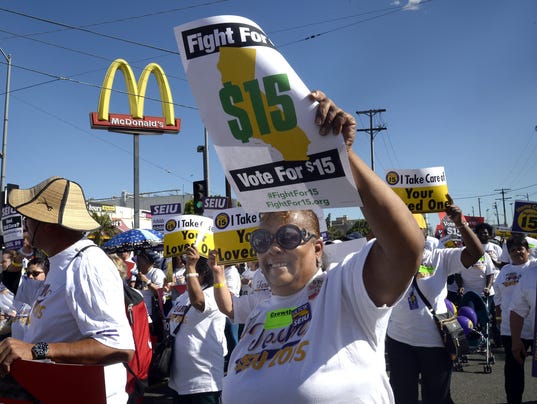|
The National Employment Law Project examined the historical data relating to the 22 increases in the federal minimum wage between 1938 and 2009 to determine whether or not the claims—that if wages are raised, jobs will be lost—can be substantiated. They examined employment trends before and after minimum-wage increases, looking both at the overall labor market and at key indicator sectors that are most affected by minimum-wage increases. The results were clear: these basic economic indicators show no correlation between federal minimum-wage increases and lower employment levels, even in the industries that are most impacted by higher minimum wages. To the contrary, in the substantial majority of instances (68 percent) overall employment increased after a federal minimum-wage increase.
Workers in 14 U.S. cities, states and counties, plus the District of Columbia, will get a pay floor boost.
Contact NH COSH to learn more about ongoing actions in
New Hampshire supporting raising the minimum wage to $15/hour!
USA Today: $15 Minimum Wage Could Spread in 2016

|


